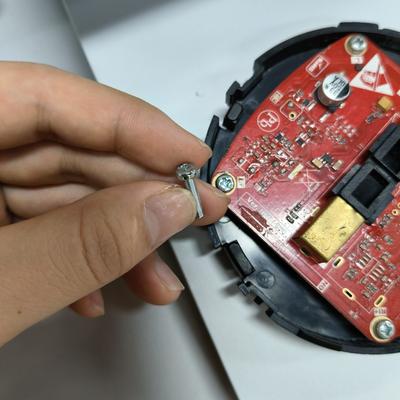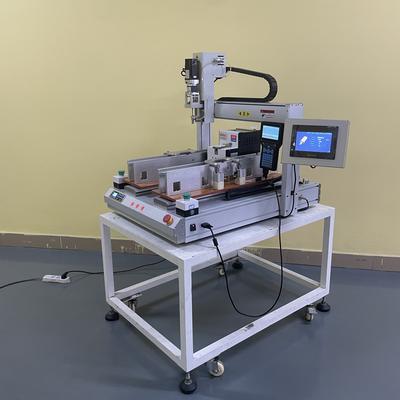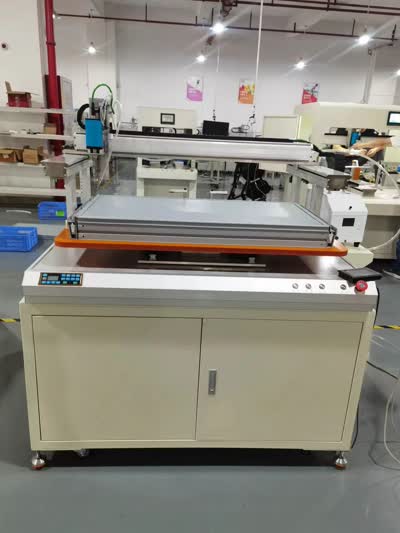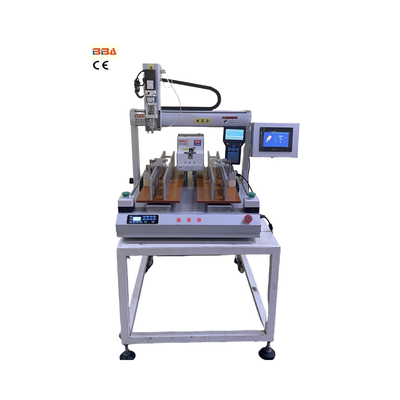Intelligent Screw Locking Technology Optimizes Industrial Assembly | Automated Fastening Solutions

| Product Name | Applicable industries |
| Smart Screw Driving Machine | Automotive Electronics Assembly |
Screw locking automation represents a critical frontier in industrial manufacturing efficiency. As global industries pivot toward smarter, more responsive production ecosystems, the evolution of automated fastening technology is reshaping assembly lines worldwide. This transformation extends beyond simple mechanization to encompass intelligent, interconnected systems that optimize precision and throughput while minimizing human error.
Intelligent Process Control
Modern systems now feature self-regulating mechanisms that adapt dynamically to material variations and environmental conditions. Equipped with real-time torque-angle monitoring and force-sensing capabilities, these solutions automatically compensate for inconsistencies in component tolerances. This self-correction capability reduces rework rates by 20-35% across automotive and electronics assembly applications, while predictive algorithms preempt potential failures before they interrupt production flows.
Integrated Smart Manufacturing
Seamless integration with factory networks has become essential. Current platforms transmit torque values, process completion status, and quality metrics directly to Manufacturing Execution Systems using OPC UA and MQTT protocols. This bi-directional communication enables real-time production visibility while supporting zero-defect manufacturing initiatives through immediate anomaly detection. The resulting datasets also facilitate continuous improvement by identifying patterns in fastener failure modes and assembly bottlenecks.
Compact Modular Solutions
Space-efficient designs have gained significant traction as manufacturers maximize existing floor space. Today's servo-electric units now achieve equivalent torque output at 40% smaller footprints compared with previous generations. Standardized mounting interfaces simplify retrofitting into legacy production cells, while modular components permit rapid reconfiguration for product changeovers—critical for flexible manufacturing environments handling high-mix assembly tasks.
Enhanced Precision Demands
Industry standards have evolved beyond simple torque verification. High-value sectors like aerospace and medical devices now require simultaneous angle-torque-phase analysis, with precision levels reaching ±1.5% full-scale accuracy. This granular control prevents critical failures from under-torqued connections while avoiding material damage from over-tightening. Additionally, new self-locking fastener technologies necessitate specialized drive profiles that maintain consistent clamping force under vibration.
Sustainable Engineering
Energy efficiency emerges as a key differentiator, with advanced brushless servo motors reducing power consumption by 35-50% versus pneumatic alternatives. Regenerative braking technology captures kinetic energy during deceleration cycles, while optimized gear trains minimize losses. Coupled with predictive maintenance systems that extend service intervals, these innovations significantly lower operational costs and contribute to sustainability objectives—key considerations in global industrial roadmaps.
As global supply chains prioritize resilience, automated screw locking technology will increasingly function as a strategic enabler rather than isolated equipment. Future developments will likely converge with AI-assisted process optimization and collaborative robotics integration, further transforming traditional assembly methodologies across industries while establishing new benchmarks for speed, quality, and operational intelligence in manufacturing sectors worldwide.


